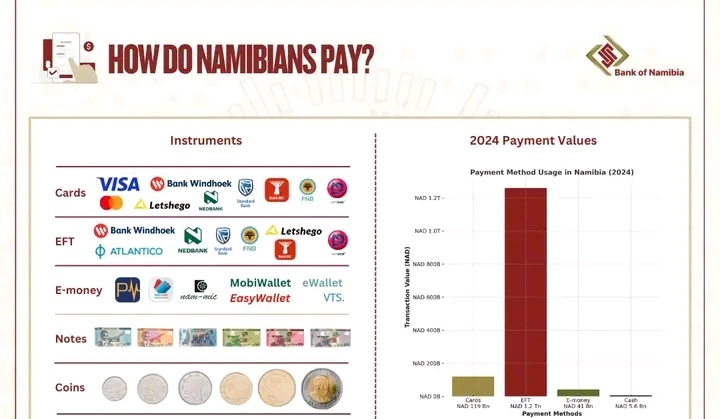Namibia’s Digital Payment Boom: EFTs Lead as Cash Usage Declines. Namibia is rapidly embracing digital payments, with Electronic Funds Transfers (EFTs) emerging as the dominant transaction method in 2024. According to the Bank of Namibia’s latest Banking Fees and Charges Comparison Report, EFTs accounted for a staggering N$1.26 trillion in transactions, significantly outpacing card payments, which stood at N$119.99 billion.
The report highlights a clear shift towards cashless transactions. E-money transactions, which include mobile wallets and other digital payment solutions, reached N$35.31 billion, while cash transactions lagged at just N$5.61 billion. This trend reflects Namibia’s growing reliance on digital financial services, aligning with global payment habits.
EFTs have become the preferred payment method for both individuals and businesses due to their efficiency, security, and lower costs compared to traditional banking options. Their dominance suggests increased consumer trust in bank-to-bank transfers for everyday transactions.
Card payments remain a key component of Namibia’s financial ecosystem. With N$119.99 billion in transactions, credit and debit cards are widely used, supported by banking incentives and growing merchant acceptance. Meanwhile, e-money is emerging as a significant player, particularly for those without traditional banking access, thanks to its convenience and accessibility.
The decline in cash usage to N$5.61 billion indicates a move away from physical currency. Factors such as the expansion of internet access, the rise of mobile banking, and a younger, tech-savvy population are driving this shift.
Join 'Namibia Today' WhatsApp Channel
Get the breaking news in Namibia — direct to your WhatsApp.
CLICK HERE TO JOIN






